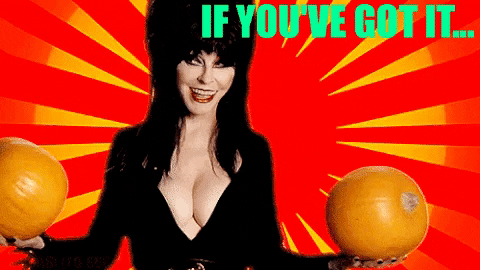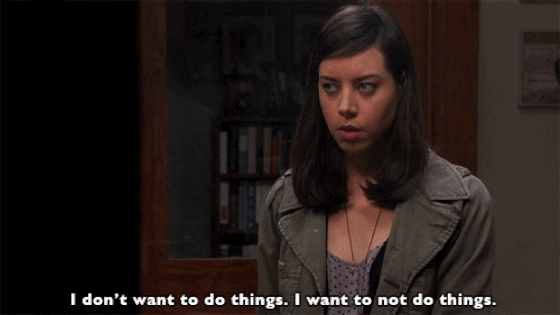For those seeing a therapist, discussing sexuality can be fraught with trepidation.
The professional might be sex-negative, or simply not knowledgeable about sexual desire and expression. Or the clinician might react poorly to a client’s involvement in kink, convincing them that engaging in Bondage, Discipline/Domination, Sadism/Submission and Masochism indicates unhealthy aggression.
Clients interested in polyamory might experience shame at the hands of therapists who believe firmly in monogamy as a the norm for human relationships. More conservative psychologists or psychiatrists might simply refuse to treat populations exhibiting sexual problems or seeking help with communicating kinky desires to a partner.
Therapists might diagnose clients with disorders of sex or gender, turning perfectly healthy alternative sexualities into a problem to be treated.
Enter Jay Blevins, a licensed marriage and family therapist working in Madison to treat clients using sex-positive, kink and poly-friendly methods. Blevins has experience with adolescents, their families, LGBTQ+ folks, couples and individuals dealing with everything from depression to discord. His passion about the field stems from his fascination with how people operate and act in relationships, particularly related to “alternative sexuality and alternative relationship structures,” he said.
“I love seeing culture changing [and] norms being challenged,” Blevins said.
Seeing so many people unhappy due to a sex-negative society motivates Blevins to put emphasis on sex positivity in his work with clients.
Sex-positive passion
Blevins said he believes sex positivity is central to his work and the rapport he builds with clients. Practicing therapy in a sex-positive way is all about undoing the damage executed by our sex-negative culture, which insists that sexuality is shameful and something to be hidden rather than discussed. Without the freedom to truly explore one’s sexuality, people struggle to express themselves in healthy ways.
“Sex is healthy,” Blevins said. “You may do things that aren’t necessarily in your best interest, and we can look at that, but that doesn’t mean the activity itself is wrong. It’s just like eating. We can eat well, we can eat not well. It doesn’t mean eating itself is evil.”
Understanding sex in this neutral, nonjudgmental way allows people to comfortably unravel their identity without suffering shame.
Even if clients visit Blevins for issues unrelated to sexuality, the topic tends to come up — Blevins said it’s unusual for it not to, as he “believes it’s that important,” he said.
This includes people who identify as asexual. Blevins said since asexuality is a type of orientation, unpacking the way asexual identity operates in relationships is equally important to examining one’s sexual identity. No matter the form sexuality takes, its role in identity and relationships is important to personal development and self-actualization.
Considering kink
Especially after the publication of the infamous “Fifty Shades of Grey,” people in all types of relationships have grown curious about BDSM.
Though “Fifty Shades” did succeed in elevating kink as a discussion topic, both the book and film depict BDSM in problematic ways more conducive to abuse than consensual kink. For those interested in exploring kinky activities such as paddling, ropes, flogging, spanking or other pursuits outside the normative sexual script, Blevins recommends taking it slow.
Partners should learn about kinky interests by reading up on the subject. Consider forming a kinky book club and learn about BDSM from the wealth of options available, or investigate kinky blogs online. Blevins also recommends partners investigate FetLife, an online community of people interested or engaging in kink, fetishes and other activities. Reading and posting on these forums allows kinksters to form a supportive community while learning about proper technique. In addition, Madison offers gatherings of kinky folks in events called “munches,” which can be easily found online.
As partners begin to incorporate kink and continue to perform research, communication is essential. Partners can even communicate desires using apps like PlsPlsMe, which allows partners to pick turn-ons and only reveals interests that both people have in common.
Feedback is important both in and outside of the bedroom as well, and everyone should feel comfortable indicating when they need activities to slow down or stop. Finally, Blevins points out that kink does not necessarily require a lot of expensive tools. Plenty of household items — ties, spatulas and bungee cords, to name a few — function perfectly as kinky toys. Pinterest even has some suggestions for DIY projects.
Want to pilot polyamory?
Two kinds of people see Blevins looking for advice about non-monogamy: those interested in beginning polyamory and those who have tried polyamory and failed.
Blevins said opening up a relationship is not the solution to a bad relationship, but in fact quite the opposite. A toxic relationship will function poorly whether monogamous or not. Research is also essential here, and plenty of excellent books exist on the subject.
Partners should not rush — important decisions about boundaries, publicity and other parties must be made cooperatively in order to ensure proper communication and comfort in a polyamorous relationship.
Partners frequently neglect certain considerations, such as whether to tell family, and thus have negative experiences with non-monogamy. But this arrangement can suit certain partners perfectly as long as people take care.




















